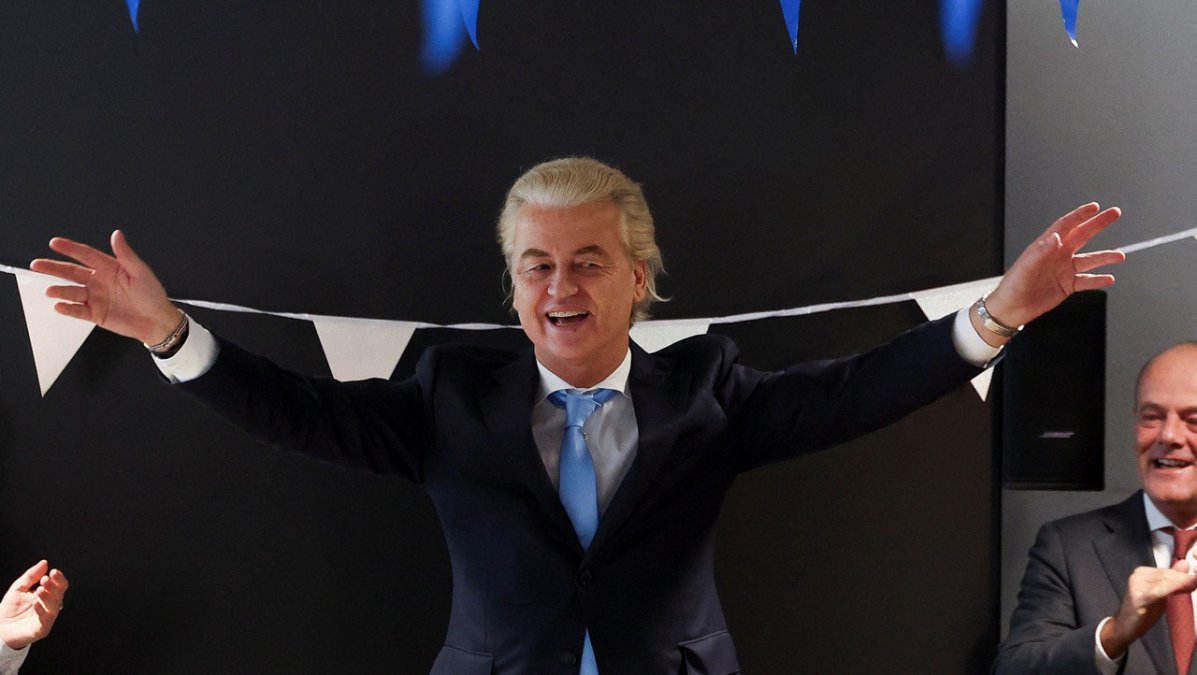Orange Tulips Under the Feet of Fascism
Netherlands’ Shift to the Right
The victory of the far-right party in the Netherlands surprised Europe and raised concerns ahead of the European elections. Geert Wilders, the historic leader of the Party for Freedom, an anti-Islam and Euro-skeptic far-right organization, won the Dutch elections and managed to secure more than 23% of the votes, an unexpected result in the rugged political landscape of the Netherlands.
The votes secured should guarantee 37 out of 150 parliamentary seats for the Dutch Trump party, almost double the seats it had in the previous parliament, compared to the 25 seats of the coalition between the Labour Party and the Green Left led by Frans Timmermans, former Vice-President of the European Commission, and the 24 seats of the People’s Party for Freedom and Democracy of Mark Rutte, the former conservative prime minister who has governed the country for the past 11 years.
In his first speech after the victory, Wilders said voters clearly stated they were tired and emphasized his stance against immigration, a topic that overshadowed his campaign. The election result, described by the newspaper De Telegraaf as resonant, has sparked a wave of shock and astonishment across the European Union. In an interview with Reuters, Wilders said he wants to become prime minister and supports a referendum on the Netherlands leaving the EU.
The Dutch Trump
Wilders is often compared to former US President Donald Trump due to his different political positions, anti-Islam and anti-immigration stances, which include very harsh measures such as closing borders and deporting illegal immigrants. Wilders said the Dutch hope that people can take back their country and ensure that the immigration tsunami is reduced. According to several analysts, his victory is mainly due to his ability to center the issue of immigration in the heart of his electoral campaign.
Last year, the net migration rate to the Netherlands more than doubled, reaching over 220,000 people, partly due to asylum seekers forced to leave their homeland because of Russia’s attack on Ukraine. This phenomenon has plunged the affordable housing shortage into an unprecedented crisis, depriving young people and low-income families of buying or renting homes.
Islamic organizations have previously expressed concern over Wilders’ victory. Muslims make up about 5% of the Netherlands’ population. Habib El Kadouri, head of an organization representing Moroccans in the Netherlands, told the Dutch news agency ANP that concerns and fears are very high. We fear being labeled as second-class citizens.
Is Winning Enough?
The 35-seat victory, although unexpected, does not guarantee the 76-seat majority needed for Wilders to form a government. Observers predict that the Party for Freedom will struggle to find coalition partners. Leaders of the People’s Party, who had spoken about the possibility of forming a government and coalition with the victorious party during the election campaign, quickly withdrew and announced they do not intend to form a coalition with Wilders as prime minister. Meanwhile, the center-right party called the New Social Contract has also rejected joining a potential Party for Freedom cabinet.
Anticipating the difficulties he might face in finding allies to form a coalition, Wilders attempted to moderate his tone after the victory, stating that he understands well that parties do not want to form a coalition with a party seeking unconstitutional actions and participate in the government. He announced his readiness to remove extreme actions from his plans, but insisted that this would not include mosques, the Quran, and Islamic schools.
However, these days, some are proposing the formation of a coalition to exclude the Party for Freedom. Altogether, the center-right New Social Contract, the Labour Party, the Green Left, and the Democrats reach 78 seats, enough to form a government. Even considering their internal differences, they would be part of an executive branch that could easily trouble and paralyze the government.
Nexit is on the Way
While the Netherlands focuses on the puzzle of the new government, Wilders’ victory, a Euro-skeptic and populist leader who supports a referendum on leaving the EU, promises to create a shockwave across the 27-member bloc. It is no coincidence that today all the main far-right representatives in Europe expressed satisfaction with the election result.
Hungarian Prime Minister Viktor Orban said the wind of change is blowing, while for French Marine Le Pen, leader of the National Rally, Wilders’ victory confirms Europe’s growing reliance on defending national identity. Matteo Salvini, leader of the Lega Nord party, wrote that a new Europe is possible.
However, chronologically, Wilders’ success in the elections is indeed the latest victory of nationalist and anti-establishment politicians worldwide, rising against liberal elites globally. His victory will increase pressure on Brussels to reduce migration and provide motivation for far-right parties, even though significant growth had already been predicted for them in polls ahead of the European elections in June.
According to Bruno Le Maire, France’s finance minister, Wilders’ victory results from many concerns and fears accumulated in recent years in Europe, fueling the rise of far-right parties. Raphael Glucksmann, a European Socialist representative, also warns that the EU is declining both internally and externally and believes that Russian President Vladimir Putin will celebrate Wilders’ victory.
Analysts believe that Wilders’ party won both because of its uncompromising stance on immigration and because it managed to focus public dissatisfaction with living costs—the price of housing has nearly doubled in 10 years—at the center of its electoral campaign.
Other parties also made a critical mistake by allowing immigration, Wilders’ favored topic, to become a priority in election debates. Even if a coalition sidelines him from the government, Wilders’ voice will remain strong and loud, as he is not one to compromise, for example, on the topic of Nexit, similar to what Nigel Farage did with Brexit in Britain.

